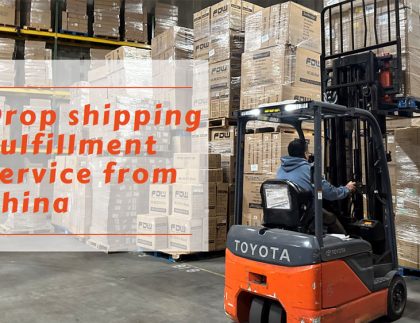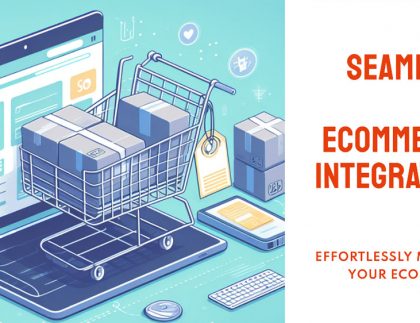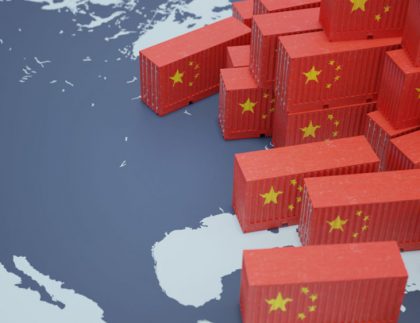Navigating the Peak Shipping Season: Ensuring Successful E-commerce Order Fulfillment
The peak shipping season is a crucial time for the e-commerce industry, where online retailers experience a significant surge in orders and shipments.

As the summer season approaches, it’s time for end-to-end e-commerce businesses to gear up and plan your marketing summer shipping strategies to make the most of this lucrative season!
With more and more consumers turning to online shopping, e-commerce companies have the opportunity to boost their sales and revenue during the summer months.
In this article, we will explores the concept of the peak shipping season, its importance for e-commerce, the factors that affect it, and best practices for importers to plan for potential delays and hurdles.
Contents
01 What is the Peak Shipping Season?
02 Why is Peak Season Important for E-commerce?
03 Factors Affecting the Peak Shipping Season
04 Planning for Potential Delays and Hurdles
05 Best Practices in Peak Shipping Season & Order Fulfillment
What is the Peak Shipping Season?

The peak shipping season refers to the period when there is a substantial increase in shipping and logistics activities due to heightened demand, usually around major holidays or shopping events such as Black Friday, Cyber Monday, and the festive season.
It is characterized by a surge in online orders and shipments, which puts pressure on logistics providers and supply chains.
During this time, customers are actively seeking deals and discounts, leading to an exponential increase in sales volume.
To meet this heightened demand, e-commerce businesses must be well-prepared and employ effective strategies to ensure seamless order fulfillment and customer satisfaction.
Why is Peak Season Important for E-commerce?
The world of e-commerce thrives on constant evolution, adapting to ever-changing consumer behaviors and demands.
Amidst this dynamic landscape, peak season emerges as a critical period that holds immense importance for e-commerce businesses.
Surging Sales and Revenue Generation
Peak season, often coinciding with holidays, festivals, or special occasions, witnesses a significant upswing in consumer spending. During this time, individuals are on the lookout for gifts, personal purchases, and exclusive deals.
E-commerce businesses stand to benefit greatly from this surge in demand, experiencing a substantial increase in sales volumes.
Competitive Edge in the Market
For e-commerce businesses, peak season represents a crucial battleground for competition.
By offering compelling discounts, exclusive promotions, and an impeccable customer experience, online retailers can attract a larger share of the market and potentially outshine their competitors.
Customer Expectations and Long-term Relationships
During peak season, customers’ expectations soar to new heights. Consumers anticipate seamless shopping experiences, expedited deliveries, and top-notch customer service.
Positive experiences during this crucial period pave the way for customer loyalty, repeat purchases, and advocacy, ultimately boosting the business’s reputation and profitability throughout the year.
Scaling Operations and Infrastructure
Preparing for peak season challenges e-commerce businesses to assess their operational capabilities and scale accordingly.
As customer demand intensifies, companies must ensure their infrastructure, logistics, and supply chain are robust enough to handle the surge in orders.
Investing in technology, automation, and additional resources allows online retailers to streamline processes, improve efficiency, and maintain high service standards.
Or outsourcing a 3pl provider to he help you make logistics strategies. By effectively managing inventory, optimizing order fulfillment, and swiftly resolving any operational bottlenecks, Direct-to-consumer (DTC) brands can enhance customer satisfaction and capitalize on the increased demand.
Factors Affecting the Peak Shipping Season
Several factors influence the dynamics of the peak shipping season. Understanding these factors is crucial for importers and e-commerce businesses to effectively plan and manage their operations during this critical period.
Increased consumer demand
During peak season, customers tend to shop more frequently and purchase higher volumes of products. This surge in demand can put a strain on supply chains, leading to potential delays and logistical challenges.
Promotional campaigns and events
Sales events like Black Friday and Cyber Monday contribute to the spike in orders and shipments. Ecommerce businesses often offer significant discounts and promotions during these events to attract customers. This further intensifies the demand and creates a need for efficient logistics solutions.
Weather conditions
Adverse weather conditions, such as snowstorms, hurricanes, or heavy rain, can disrupt transportation networks and cause delays. Buyers must consider these weather-related risks and develop contingency plans to mitigate potential disruptions to their supply chains.
Capacity constraints
The increased demand during peak season can strain logistics networks, leading to capacity limitations and potential bottlenecks. When importing from China, brands must collaborate closely with their logistics partners to secure sufficient transportation capacity and warehouse space to meet the surge in orders.
Customs and regulatory processes
Buyers must navigate the complex customs clearance procedures, which can be further impacted by increased shipment volumes.
Delays in customs clearance can significantly impact order fulfillment and customer satisfaction. Importers should work closely with customs authorities and ensure all necessary documentation is in order well in advance.
Planning for Potential Delays and Hurdles
Importers should take proactive measures to mitigate potential delays and hurdles during the peak shipping season. By implementing effective strategies and contingency plans, businesses owners can ensure smooth operations and customer satisfaction. Here are some best practices to consider:
Early preparation
Start planning well in advance by forecasting demand, securing transportation partners, and communicating with suppliers. By forecasting demand accurately, businesses can avoid inventory shortages and ensure timely reordering.
Diversify transportation modes
Explore various shipping options, including air freight, ocean freight, and rail, to maintain flexibility and mitigate potential capacity constraints. Utilize a mix of transportation modes based on the urgency and nature of the products being shipped.
From COVID- 19 first hit, 2021 Suez Canal obstruction, to some countries closed their airspace, one of the most important lessons we have learn is the importance of supply chain diversity in global shipping industry.
Considering alternate trade routes and transportation systems is necessary. DIDADI provides access to different transportation modes, such as sea, air, rail, trucks and multimodal options in digital system, which make your supply chain more flexable, accurate and responsive to unexpective changes.
Utilize technology and data
Leverage logistics technology solutions to track shipments, analyze data, and optimize supply chain operations. Advanced software and platforms provide real-time visibility into shipments, allowing importers to identify bottlenecks and make informed decisions.
DIDAD provides best-in-class warehouse management system(WMS),e-commerce brands can leverage DIDADI’s fulfillment services in any of our fulfillment centers across US, UK and EU to improve cross-border shipping, decrease expenses, and accelerate deliveries.
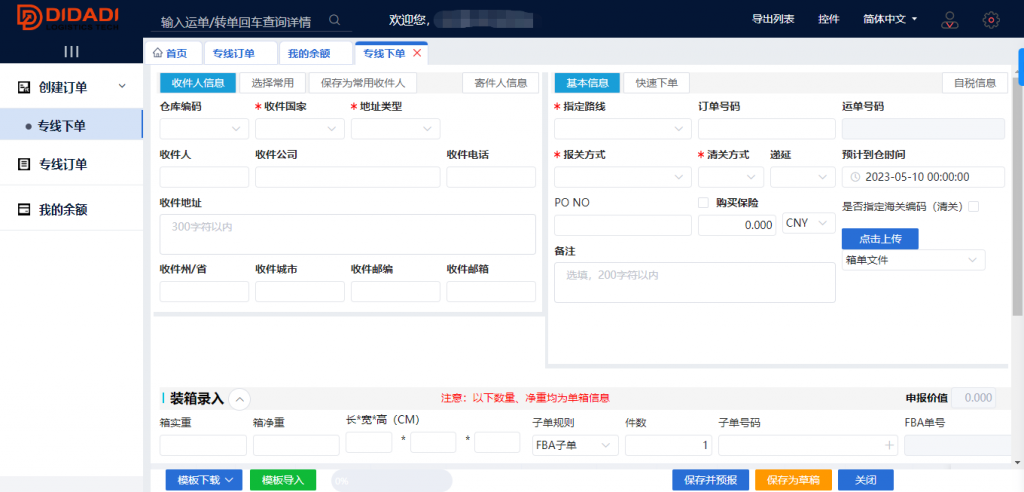
Establish contingency plans
Develop backup strategies to address unforeseen circumstances such as weather disruptions or port congestion. This may involve identifying alternative transportation routes or securing additional warehouse space in case of capacity limitations.
Best Practices in Peak Shipping Season & Order Fulfillment
DIDADI Logistics Tech offers innovative solutions for efficient order fulfillment during the peak shipping season. Our services are designed to address the unique challenges faced by importers and ecommerce businesses during this critical period.
Advanced logistics technology
DIDADI’s platform utilizes high-tech to optimize route planning, warehouse management, and last-mile delivery, ensuring faster and more accurate order fulfillment. By leveraging cutting-edge technology, importers can streamline their operations and improve overall efficiency.
If you work with a 3PL like DIDADI, you get access to premium technology and direct integrations with leading e-commerce solutions, from inventory planning to returns management.
Real-time visibility
Through our tracking system, business owners can monitor their shipments in real-time, gaining visibility and transparency into the entire supply chain process. This enables proactive problem-solving and allows for effective communication with customers regarding delivery updates.
Warehouse optimization
DIDADI’s smart warehousing solutions enable efficient inventory management, order processing, and seamless coordination between different fulfillment centers. By optimizing warehouse operations, importers can reduce order processing time, improve inventory accuracy, and enhance overall operational efficiency.
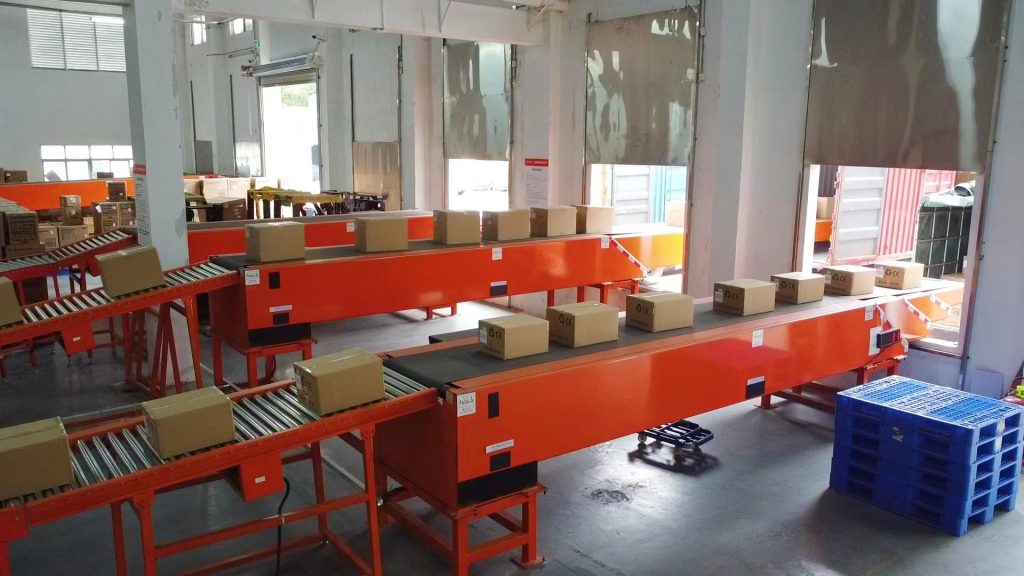
Customized logistics solutions
DIDADI offers tailored logistics solutions based on individual importer requirements, taking into account factors such as shipping volume, destination, and specific industry needs.
This personalized approach ensures that e-commerce business receive the most relevant and effective logistics services.
Customer-centric approach
DIDADI prioritizes customer satisfaction by providing timely updates, proactive communication, and reliable delivery services. By partnering with a customer-centric logistics provider like DIDADI, brands can ensure that their customers receive their orders on time, leading to enhanced customer loyalty and satisfaction.
Start your ship now!
- Improve your cross-border shipping
- Decrease expenses
- Accelerate deliveries
